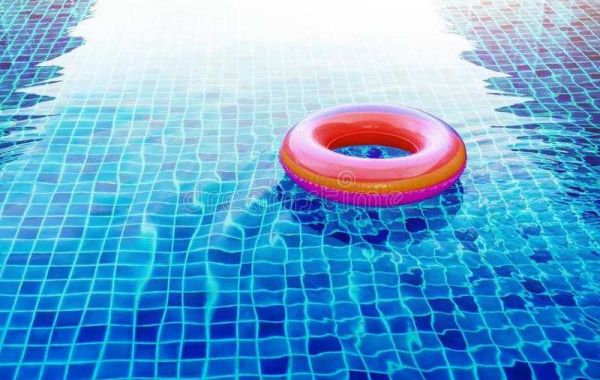Introduction
Your AstralPool Chlorinator works by transforming part of the salt (sodium chloride) in your pool into chlorine, which begins to kill algae and germs while also sanitising it. Your Chlorinator control offers a number of features that make operating your chlorinator and filtration system a breeze.
Astral Pool chlorinator is also known as salt water chlorinator. The chlorination of swimming pools and hot tubs using dissolved salt (1000–36,000 ppm or 1–36 g/L) is known as salt water chlorination. The chlorine generator (also known as a salt cell, salt generator, salt chlorinator, or SWG) produces chlorine gas or its dissolved forms, hypochlorous acid and sodium hypochlorite, which are already frequently used as pool sanitizers, using electrolysis in the presence of dissolved salt. As a byproduct, hydrogen is also created.
Salt water chlorinator pools use chlorine to sanitise the water and kill bacteria. The major difference between a chlorine and a saltwater swimming pool is that chlorine is supplied on a regular basis in a chlorine pool, but in a saltwater pool, chlorine is created automatically by the chlorine generator. A saltwater pool (or hot tub/spa) will also include dissolved salt, which is the same salt you use in the kitchen. A salt water chlorinator is multifunctional and may be used in a range of settings, including household and commercial swimming pools, jacuzzis, and spas.
HOW DO astral pool CHLORINATORS WORK?
Swimming pool chlorine generators (also known as saltwater pool chlorinators) from AstralPool produce their own chlorine, eliminating the need to manually add chlorine to your pool.
To sanitise your swimming pool, saltwater chlorinators employ an electrolytic cell. The cell turns the chloride in the salt water into chlorine by adding a little amount of salt (sodium chloride) to the pool water. This is a very effective and cost-effective way to sanitise your pool.
Traditional chlorinated pools can produce red eyes, skin irritations, and harsh chemical odours, which saltwater pools can manage to remove. And the salt content of the water is so minimal that it is nearly invisible. It's really less than a teardrop, making it soft on the skin and lovely to swim in. Alternatively, several mineral salt mixes are available on the market that may be used with an Astral Pool chlorinator generator to give a touch of luxury to your pool water.
The chlorine level in the pool may be controlled using the control board. Certain types, like as the Viron eQuilibrium, also allow you to link your salt chlorinator to a pool automation system and control it remotely using an iPad, iPhone, or Android smartphone.
- Water from the pool containing salt (sodium chloride) enters the cell
- Electric charge is applied to electrolytic plates and turns chloride ions into gas
- Chlorine gas dissolves into the water
- Water with pure chlorine is returned into your pool
WHAT ARE THE BENEFITS OF USING (AUTOMATIC) SALTWATER CHLORINATORS?
- Fewer chemicals
There is less need for extra sanitising chemicals when chlorine is present in the pool. Other chemicals, such as oxidizers, are reduced as well, saving you money and time. This implies that pool maintenance is less harmful to the environment. Moreover, there is no significant chlorine odour in the surrounding of the pool.
- Minimal maintenance
A chlorinator is low-maintenance and may be programmed to operate your filtration pump and run the system on its own. The amount of chlorine produced may be adjusted to fit your pool's size and bather demand. However, you should still test your water on a regular basis to verify that your chemical levels are in check.
- Cost-effective
Astral Pool chlorinator may be more expensive up front, but they save significantly more money and effort in the long run due to the massive reduction in chemicals and maintenance.
Note: that the salt cell has a limited lifespan (approximately 3-5 years depending on use), therefore it will need to be replaced, just like tyre replacements or other routine automobile maintenance.
- Smart features
The current generation of chlorinators has Bluetooth or Wifi connectivity, allowing you to monitor and manage your chlorine production remotely. They also include smart sensors that can automatically reduce your chlorine output in cold water, reducing salt cell wear and tear.
ADVANTAGES OF ASTRAL POOL CHLORINATOR
- LESS MAINTENANCE
Pool cleaning is a lot easier with a saltwater system. Chlorine is still needed in astral pool chlorinator, although it isn't nearly as much as it is in freshwater pools. The salt cells in these pools will manufacture any chlorine that is required, but you should still check chlorine levels on a regular basis to ensure that everything is in working order. Moreover, you only have to clean your saltwater pool once a year, when you empty it, change the filter, and scrub it.
- SALTWATER POOLS ARE GENTLER
Red eyes and itchy skin are no longer a problem. People who are sensitive to chlorine will have less irritations with a saltwater generator because chlorine levels are substantially lower.
- SOFTER WATER
Saltwater pools, like rainfall or water softeners, make water seem smooth and silky rather than the irritating feel of chlorinated water.
- MORE COST EFFECTIVE
Saltwater pools are more cost efficient in the long term, while being more expensive up front due to the purchase of a saltwater generator. Homeowners with saltwater pools can avoid purchasing pool chemicals on a regular basis.
DISADVANTAGES OF ASTRAL POOL CHLORINATOR
- MORE DIFFICULTY
One of the disadvantages of a chlorinated pool is that any sanitary difficulties can usually be solved by adding additional chlorine. Any complications that arise with advanced electric saltwater systems are likely to necessitate the intervention of a specialist.
- Corrosiveness
The corrosive ability of salt against things like stone is arguably the most significant disadvantage of a salt water pool system. As a pool owner, you should seal any porous surface that will be exposed to salt water on a regular basis to avoid damage. Moreover, you should be aware that stone surfaces will most likely wear out throughout the course of your salt water pool's lifespan, making this a risk you should consider when considering whether or not to build this water system.
- High Start-Up and Replacement Costs
Astral pool chlorinator are more expensive to establish than standard chlorine pools. The salt water chlorinator and the replacement charges connected with the chlorinator's salt cell, which is the component that converts salt to sodium hypochlorite, account for the majority of the high cost. Despite the fact that the equipment is more expensive than other choices, salt water systems do not require any additional chemicals, saving pool owners money in the long term.
- Systems must be run on a continuous basis.
To convert salt into sodium hypochlorite, salt water systems must be kept running at all times. This might result in additional utility costs. Plan on utilizing 500 extra watts of power for every 20,000 gallons of water when considering the higher utility expenditures for a salt water pool system.
Visit our site: https://poolwiseliving.com.au/








